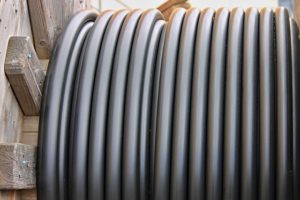Creating a beautiful and functional yard while staying mindful of the environment is easier than ever with eco-friendly fencing options. These sustainable choices not only enhance your outdoor space but also reduce your environmental footprint. Fence Care and Maintenance are crucial to ensure your eco-friendly fence remains in top condition and continues to serve its purpose effectively. Here’s a guide to some of the best eco-friendly fencing options available today, helping you make a green choice for your yard.
Bamboo Fencing
Bamboo is a rapidly renewable resource, making it an excellent choice for eco-friendly fencing. It grows much faster than traditional wood and doesn’t require replanting after harvesting.
Benefits:
- Sustainable Growth: Bamboo can grow up to 3 feet per day, making it one of the fastest-growing plants on the planet.
- Durable and Strong: Despite its lightweight appearance, bamboo is incredibly strong and resilient.
- Aesthetic Appeal: Bamboo fencing adds a natural, tropical look to your yard, blending seamlessly with greenery.
Recycled Composite Fencing
Recycled composite fencing combines recycled wood fibers and plastic to create a durable and low-maintenance fencing material.
Benefits:
- Eco-Friendly Materials: Made from recycled materials, composite fencing helps reduce waste.
- Long-Lasting: Resistant to rot, insects, and weathering, composite fencing has a longer lifespan than traditional wood.
- Minimal Maintenance: Requires little upkeep compared to natural wood, saving time and resources.
Reclaimed Wood Fencing
Using reclaimed wood for fencing gives new life to old materials, reducing the demand for freshly cut lumber and minimizing waste.
Benefits:
- Sustainability: Reusing wood helps conserve


 The first consideration you should make when purchasing electrical wiring materials is to ensure compliance with the National Electrical Code. The NEC outlines all of the requirements for safe installation and electricity use, so it is vitally important to follow its guidelines without exception if you want a properly functioning system. If your local area does not have a copy, search online or ask around at a local hardware store for someone familiar with the code. Additionally, the solid copper wire does not have as much flexibility as other types of wire, so it is not as easy to work with; you can find
The first consideration you should make when purchasing electrical wiring materials is to ensure compliance with the National Electrical Code. The NEC outlines all of the requirements for safe installation and electricity use, so it is vitally important to follow its guidelines without exception if you want a properly functioning system. If your local area does not have a copy, search online or ask around at a local hardware store for someone familiar with the code. Additionally, the solid copper wire does not have as much flexibility as other types of wire, so it is not as easy to work with; you can find